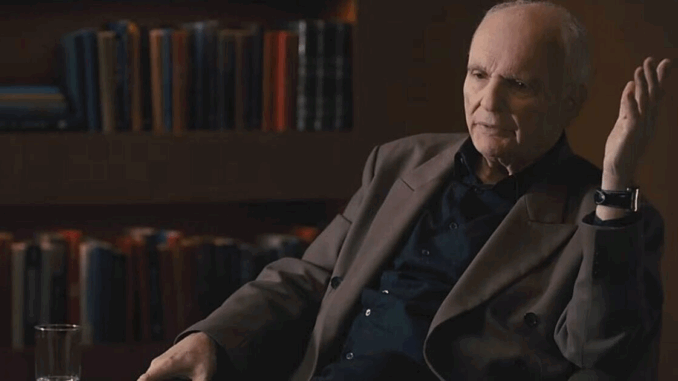
The Sopranos creator, David Chase makes his stance clear, drawing the line separating him and Mad Men’s creator.
Aired between 1999 and 2007 on HBO, The Sopranos has become a landmark in television history, often hailed as the show that redefined modern TV drama. The storyline was intricate with a New Jersey mob boss, Tony Soprano – played by James Gandolfini – taking the center stage.
But what made the series super successful was its attention to detail and well-crafted script. Tony isn’t your typical gangster-gangster. He is a middle-aged man seeking therapy, trying to deal with the personal and professional pressures of running a criminal empire.
Within a short span, the series became a massive hit with a cult following even today, 16 years after its last season. However, The Sopranos received an ambiguous ending, despite HBO offering more money to continue. David Chase voluntarily chose to end the series and was indifferent towards the cancellation, contrasting sharply with Mad Men creator Matthew Weiner’s emotional response.

The Sopranos showrunner David Chase has an indifferent opinion about the show’s sudden ending
The ending sure did spark a debate among viewers, just like David Chase intended to. Although he is proud of his brainchild and its cult following, the 79-year-old has consistently expressed a detached and pragmatic perspective regarding the show’s potential cancellation.
Although HBO poured in money, offering Chase more so he could continue the franchise, he declined the offer and ended the series with the sixth season. Now, coming to the crux of the matter, in a revealing interview with the Peabody, Chase shared that he was not emotionally invested in the show’s success!
Furthermore, he stated that even if HBO decided to cancel the series, he would have accepted it without much emotion, viewing it as an opportunity to pursue his true passion – filmmaking. He also emphasized the importance of maintaining creative integrity and avoiding pandering to audiences for the sake of popularity – a perspective that sharply contrasts with Mad Men’s creator, Matthew Weiner.
Weiner discussed the emotional challenges and uncertainties he faced during the show’s production, particularly after its initial success. He also acknowledged the pressure of meeting high expectations and the emotional toll it took on him, reflecting a deeper personal investment in the show’s legacy.
These are polar opposite views, with Chase’s indifference highlighting his commitment to artistic authenticity over commercial success, and Weiner’s emotional engagement underscoring the personal stakes involved in creating a beloved series.
The Sopranos’ Massive Success and Its Cultural Impact
Before The Sopranos, television had clear heroes and villains. Conventional dramas dominated primetime TV, and complex character studies were mostly reserved for film. But Chase broke away from the typical norm with Tony Soprano — a deeply flawed, violent man who was also charismatic, loving, and emotionally vulnerable.
Chase’s vision for Soprano– blending of the antihero archetype with psychological realism became a blueprint for future iconic characters like Walter White (Breaking Bad), Don Draper (Mad Men), etc.
And the viewers? They loved it! The series was a blockbuster, earning over 20 Primetime Emmy Awards (21 to be precise), five Golden Globes, and numerous other accolades. It even got consistent placings as “The Greatest Show of All Time,” in The Rolling Stone, The Guardian, etc.
Beyond these critical acclaim, The Sopranos changed how people talked about TV in general. Most importantly, the close interaction between Tony and Dr. Melfi (his therapist) helped de-stigmatize therapy and opened new doors for discussions around masculinity, depression, and emotional trauma.
The Sopranos is currently available on Hulu, and Mad Men on AMC+ (can purchase on Amazon Video and Apple TV)
